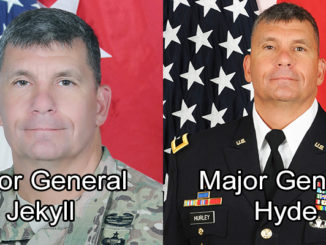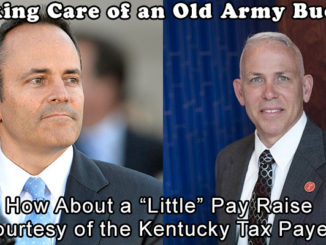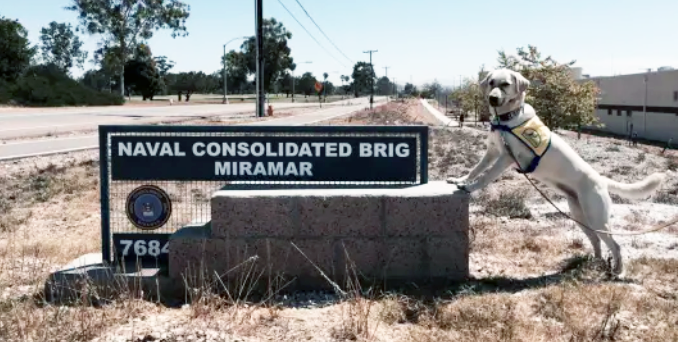
PROLOGUE:
We tend to forget that people behind bars are just that, people. Sadly, many times the Pentagon views these people as throwaways. Once a person is convicted and thrown in prison they disappear from our consciousness. That is exactly what the Pentagon wants, especially to whistleblowers who have exposed criminal misconduct by the admirals and generals.
The military created a judicial system they can control and manipulate to produce a desired result. They first started with the so-called Uniform Code of Military Justice (UCMJ) which is an absolute joke.
The UCMJ is never applied equally to all ranks, therefore it cannot be considered as the “Uniform” Code of Military Justice. There’s nothing uniform about it. The enlisted and junior officers are sent to prison while the admirals and generals are allowed to retire to avoid prosecution.
The UCMJ along with the Manual for Courts Martial is heavily slanted in favor of the government. When they have their own little juries (picked by the convening authority), their own little courts, their own little prisons… what can possibly go wrong?
A very experienced homicide detective and former Army veteran told us that in his opinion, a high percentage of military members sentenced to prison are actually innocent. And because of the slanted system, many more have been over sentenced. Instead of receiving three months in prison, they got ten years (or more).
MilitaryCorruption.com gives people who have no voice, the opportunity to speak directly to the American people. Sadly, most Americans won’t care, but we do. Most military personnel have little or no voice unless their daddy is a U.S. Senator.
Consequently, MC.com will be running regular articles about the military gulags and the antics that goes on behind the walls of America’s military prisons. America may not care and the Pentagon certainly doesn’t because they put them there.
MilitaryCorruption.com does care. We will embark on exposing every instance of misconduct that goes on behind the bars of America’s military gulags that we are made aware of.
This will include the mistreatment of prisoners, but also about the struggle of inmates in their fight against the corrupt judicial system that put them there. MC.com will pull back the curtain on a dark and secret organization within America’s military that harms people every day.
If you are a friend or loved-one of someone currently serving time behind bars, or someone who has served their time at the gray stone hotel, contact us if you have a story about corruption you were subjected to or was a witness to.
Again, if you witnessed improprieties or have evidence of wrongdoing associated with the military penal system, we definitely want you to contact us. Because of the amount of corruption and misconduct we probably will be inundated with information, but be patient as we sort through all of it.
On a side note: Robert Conrady, Leon Brown and Major Burris, we also want to bring our readers up-to-date on your cases. Have your relatives contact us please.
PRISON CHRONICLES #1: (from someone requesting anonymity who served his sentence and wishes to tell his story)
WHAT LIFE IS REALLY LIKE BEHIND BARS AT
NAVAL CONSOLIDATED BRIG MIRAMAR (NCBM)
No military member anticipates being arrested, tried, and convicted by the military justice system when taking an oath of service. While there are certainly much worse places for military personnel to serve their sentences, for those with 10 years or less, Naval Consolidated Brig Miramar (NCBM) is one of those facilities in the military penal system.
Built in 1989, NCBM is the main dumping ground for those convicted in the military justice system and sentenced to a maximum of 10 years of confinement. Those with sentences of over ten (10) years are generally incarcerated at Ft. Leavenworth, KS.
NCBM is located at Marine Corps Air Station Miramar in San Diego, CA, and is the parent command for Navy brigs at Joint Base Pearl Harbor-Hickam, HI, Charleston, SC, and Chesapeake, VA.
What makes NCBM so distinctive is that it is the only long-term military confinement facility whose main purpose is the confinement and “treatment” of sexual offenders and it is the only Tier III facility for female offenders.
It is no secret that, while those who murder and betray their country are reviled among their peers, those who are convicted of a sexual offense are considered to be the lowest scum to walk this earth. However, regardless of whether a person has been convicted rightly or wrongly of an offense, it does not mean that person is any less a human being and deserves to be treated as one.
The current iteration of the governing document for all operations for the Navy’s brigs is SECNAV M-1640.1, Department of the Navy Corrections Manual. Article 1202.4 states, “This manual sets forth procedures which ensure fair, impartial, and humane treatment of prisoners and members under custody in compliance with law, regulations, and naval policy.”
Article 3402.1 states further, “The naval corrections program follows American Correctional Association (ACA) Code of Ethics, which expects unfailing honesty, respect for the dignity and individuality of human beings, and a commitment to professional and compassionate service.
As will be revealed in this article, words such as “fair,” “respect,” and “compassionate” seem more like an oxymoron than truth.
“Members are sentenced to confinement as punishment; they are not confined for punishment by any member of the staff of a [Military Correctional Facility] MCF. Hazing, harassment, unauthorized exercises, unnecessary restrictions or deprivations, and demeaning treatment serve no useful purpose and are prohibited.” – SECNAV M-1640.1 Article 1202.2
At first glance, anyone unfamiliar with the facility or its operations would see that anyone confined in any Navy brig is protected from any negative treatment. Notice that a confined person is referred to as “member.”
Later, the member is turned into a “prisoner” and is referred to as such throughout the rest of the document. In fact, NCBM goes a step further in its Rules & Regulations by prohibiting the use of the term “inmate.”
Those in pretrial confinement, according to the Rules & Regulations, are to be referred to as “detainees.” However, this is neither practiced nor enforced. If a detainee dares to correct a staff member on the matter, he or she faces disciplinary action for disrespect.
Within only a few lines of text, a person is subtly transformed from a human being worthy of respect and dignity to a person of lesser stature and subordinate to everyone in positions of authority.
While the majority of Air Force, Army, and Marine Corps personnel assigned to NCBM have a military law enforcement background, the vast majority of the Navy personnel are from other Navy career fields.
While this writer was at NCBM, I remember at any one time only four Masters-at-Arms (Navy law enforcement) assigned to the facility.
Most of the Navy personnel are from other non-law enforcement backgrounds, such as:
- Aviation Boatswain’s Mate (AB),
- Aviation Ordnanceman (AO),
- Construction Mechanic (CM),
- Yeoman (YN),
- Culinary Specialist (CS),
- Quartermaster (QM), and
- Sonar Technician (ST).
There are several other career field irrelevant to corrections that are often seen at NCBM but they are too numerous to put them all here.
The point is that naval personnel are not properly trained to even be in the corrections field. Naval personnel assigned to prisons more than likely have the highest percentage of committing abuses on inmates partially because of the terrible lack of training and general unprofessionalism.
Navy personnel are required to take shore duty following deployments at sea. They can request certain shore duties, yet, like most requests in the military, members will get what is needed according to the needs of your branch of service
However, staffing at correctional facilities is constantly critically needed so, if someone requests duty at a facility, it is likely that person will get it.
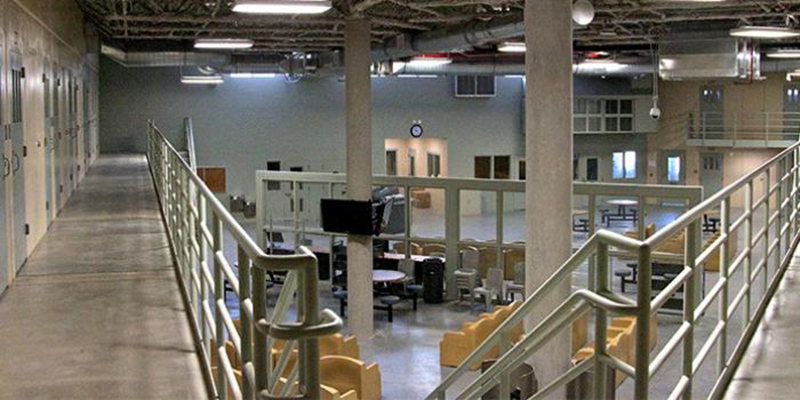
Members who select shore duty at a correctional facility mistakenly assume their duties will be easy, not requiring a lot of responsibility. After checking in at the command, members are required to attend a two-week crash course in Navy corrections to familiarize themselves with the operations and responsibilities at the facility.
This is when those members realize how much responsibility they are actually required to shoulder. Those members become disillusioned and bitter about their decisions, Unfortunately, they frequently take their frustrations out on the prisoners.
“The staff members’ intelligent and professional performance of their correctional duties can provide the environment in which prisoners can more readily see and incorporate responsibility into their own lives.” – SECNAV M-1640.1, Article 1202.3
Staff members who are angry and hate their jobs go the other direction.
Here is an example of how life at NCBM begins. Once paperwork for the transfer of custody to the brig is completed, the escorts depart the Receiving & Release Section.
The new arrival is left with the “intake worker.” If arriving late at night or in the early hours of the morning, the intake worker can make whatever nasty comments he or she pleases because it is only the two of them in the area.
In one particular case, after his escorts left, a new “resident” was left with ABEC (Aviation Boatswain’s Mate-Electrician, Chief Petty Officer) Robert Reed. As the new resident continued standing in the red footprints painted on the floor, Chief Reed, as few inches from the resident’s face, said, “Whatever you were before, that has changed. Here, you are nothing.”
While it is true that each resident is responsible for his or her choice of conduct while in confinement, beginning with this kind of derision is not acceptable behavior.
Unfortunately, the new “resident” who may desire to remain off the radar and avoid being seen as a discipline case upon arrival, has no choice but to submit to the abuse because no one else is there to bear witness to the abuse.
All members of the military, whether enlisted or officer, are expected to maintain a high standard of professionalism. While members engage in friendly banter with one another, they are required to refrain from conduct that is considered embarrassing and potentially harmful to the perception and reputation of their branches of service. In addition, they are required to conduct themselves in a manner which demonstrates sound judgment and personal decorum. It’s all in the Corrections Manual.
Many members assigned to the brig, especially those from the Marine Corps, make no effort to conceal their disdain for prisoners, regardless of the charges. When this writer arrived at NCBM in 2015, there was a very strong Marine Corps presence at the brig. This makes perfect sense since the brig is, in fact, located on a Marine Corps installation, despite being a Navy facility.
CORPORAL SALVO
Corporal (CPL) Salvo made it his mission to make residents’ time at the brig as miserable as possible. His actions were specifically designed to cause residents as much frustration as possible, helping them realize their helpless and powerless situation. His actions were calculated to goad prisoners to make some sort of verbal outburst or physical confrontation that would warrant disciplinary action and punishment.
Several years after the brig’s construction, a newer wing was constructed which was originally intended to be completely for the female population. The only way to enter this wing from inside the facility was through door C1.129, commonly referred to as “129.”
Door 129 was required to be closed at all times. If residents needed to pass through this door, whether to an appointment or returning to their housing unit, they had to push a call button, which would alert those at the Control Center (Control) that someone was at that door and it needed to be opened.
However, there were numerous incidents when the Control personnel would not open the door in a timely manner, either because they were busy or because they simply refused to do so. My longest wait time at 129 was 15 minutes, although others reported having waited as long as 30 to 45 minutes. In these moments, residents have two options:
- Wait until a staff member walks by and can open the door using their facility badge.
- If on the old wing, ask those posted in special quarters to call Control to open the door.
One particular day, yours truly was making his way from the old wing to the new wing and his progress was hindered by Control not opening 129. I decided to walk to the special quarters window since it was only about 15 feet away. Upon seeing CPL Salvo posted in special quarters, I knew asking him to call Control was going to be an exercise in futility. Since I was powerless to open the door myself, there was no choice but to ask CPL Salvo.
After knocking on the window and indicating 129 needed to be opened, Salvo immediately engaged in reprehensible behavior by ridiculing me for dependence on him. He interjected, saying, “Oh, you want me to call someone? What’s the number?” He mocked the request by holding his radio up to his ear like a telephone and said, “There is no area code 129. You should try a phone that works!”
As a result, this writer was forced to wait at the door for several more minutes while continuously pressing the call button before a staff member walked by. I filed a complaint against Salvo but he received no disciplinary action because he denied having engaged in inappropriate conduct. It was a prisoner’s word against his.
Salvo was eventually promoted to sergeant (SGT) and would remain at NCBM until about 2018, when he was ultimately discharged honorably.
On the surface, this appears to be a mundane example, but one can see how the continuous, unrelenting taunts and harassment can lead to far worse situations.
CARL STONE, MARINE CORPS MASTER SERGEANT (retired)
Carl Stone, a retired Marine Corps Master Sergeant, was originally hired as the Re-Entry Resource Coordinator. This person is in charge of ensuring residents have access to reading material that may assist them in a successful transition back to civilian life after confinement.
In addition, they are responsible for assisting residents with securing major needs, such as housing and employment, which are absolutely essential if a resident has any hope of approval for release on parole or mandatory supervised release. He was a personable and relatively affable individual. Not long after his hire, he applied for the position of Command Evaluator.
After assuming his new role, his demeanor and interaction among residents altered dramatically. No longer was he the affable person who was eager to assist residents with their upcoming transitions to civilian life. Now he took pleasure in flaunting his newfound authority.
Walking along the pathways and corridors of the facility, his favorite tactic was holding his keys so as to silence their clinking. This was to catch residents who might be engaging in conversation, especially if there was a likelihood they would be making disparaging or harsh remarks about the staff.
His biggest folly came in late November/early December of 2019, when several residents, including this writer, decided they had had enough of the brig’s mind games and went on a hunger strike. This was a coordinated effort of multiple individuals in multiple housing units.
While those on a hunger strike will refrain from consuming food, they are still allowed to consume liquids. After two days of not eating, and several debates between prisoners and staff members about what liquids regulations allowed for consumption during a hunger strike, Carl Stone took it a step further. He declared that if a prisoner was observed consuming any liquid (including water), that prisoner was guilty of breaking the hunger strike.
Immediately after being notified of this information, prisoners with medications began refusing their medications. A staff member is always posted to observe residents as they take medications and no one wanted to be observed as “breaking” their hunger strike.
As water is regularly used to ease swallowing of pills, rather than swallow their medications dry, residents refused medications altogether, risking disciplinary action in the process. Yes, prisoners will automatically be put on report and be punished for refusing to take prescribed medication.
When medical technicians were informed of residents’ decisions, this set off alarm bells since refusing to take medications as prescribed can have potentially serious, if not fatal, consequences. After several phone calls between medical technicians, Carl Stone and the Chain of Command, several hours later, he was forced to amend his decision and said water was the only liquid residents were allowed to consume while on the hunger strike.
Again, these issues may seem trivial in nature to those of us on the outside, but the torment behind the walls begins to approach cruel and inhumane proportions which is forbidden by the Constitution of the United States. Nobody cares because the military makes sure no one knows.
JESS COMBS
It is this writer’s opinion that Jess Combs was an absolute embarrassment to any branch of the military as well as to humanity. He was involuntarily separated from the Marine Corps for being too fat, way too fat.
Combs was originally hired as a Social Science Specialist, commonly referred to as a “unit counselor.” While he was not immediately assigned to my housing unit, it was apparent from the beginning that he would be a problem for many people.
He clearly played favorites and would not take complaints seriously. Once he was transferred to this writer’s housing unit, we got a taste of what he was really like as a human being.
His first time addressing the unit as counselor set the tone. He ordered prisoners not to come to him with problems unless we had proof and only if we were in a life-or-death situation. Requests for contact with our attorneys would only be allowed if he had time. “Prisoners have the right, unless for cause, to correspond with privileged correspondents via telephone. Such calls will normally be allowed.” – SECNAV M-1640.1, Article 8302.3c
If prisoners were not present when mail was distributed, regardless of the reason, we were not to come to his office to collect it but wait until mail distribution the next day. In reality, prisoners are required by NCBM regulation to receive their mail each day, regardless of whether they are present during distribution.
He wanted no complaints about treatment from staff members that was perceived to be unfair because, as he said, prisoners were “in prison and had no reason to complain about anything.”
Many prisoners attempted to file complaints against him but it was an exercise in futility. To file a complaint at the brig, a prisoner must fill out and submit a DD-0510, “Prisoner Request Form.” The act of submitting this form is commonly referred to as “dropping a chit.”
The first person to review these requests is the unit counselor. He or she is required to electronically document and personally deliver these requests to the correct personnel. Jess Combs would often decide which complaints deserved to be forwarded to the appropriate personnel. Complaints he didn’t agree with presumably ended up in the trash. This is another violations of NCBM regulations.
He frequently would abuse his authority using chits to cause disruption and tension between prisoners. He did all he could to make brig life as terrible as possible.
There are those in our society who believe prisoners deserve everything they get in prison. Law in the United States frowns upon sadistic jailers. Many instances of misconduct by prison staff is itself a violation of law.
Again, there is no accountability because the military does such a good job keeping antics by sadistic jailers in the dark.
NCBM has a contract with Canine Companions Southwest Region. Residents are eligible to apply and are carefully selected to participate in the volunteer program to raise service dogs for the non-profit organization. There are very specific rules regarding how residents are to conduct themselves with the dogs and when and where dogs are allowed to be off leash.
On Christmas Eve 2020, a resident in the dog program decided to allow two dogs to run off leash in the recreation yard while the housing unit was occupying the yard. This is against regulations because it risks the dogs running out of the yard area and subjects them to possible injury by running through the weightlifting area and players on the volleyball court.
As a former member of the dog program, I knew this was not allowed and took it upon myself to drop a chit to the program coordinator about the incident. Instead of forwarding the chit, Jess Combs called the individual to his office and informed him of the complaint against him.
This individual left the office and immediately approached me and demanded to know why I had dropped a chit on him. It wasn’t until shortly before my release from the brig that I learned Jess Combs had never forwarded the chit but, presumably, destroyed it.
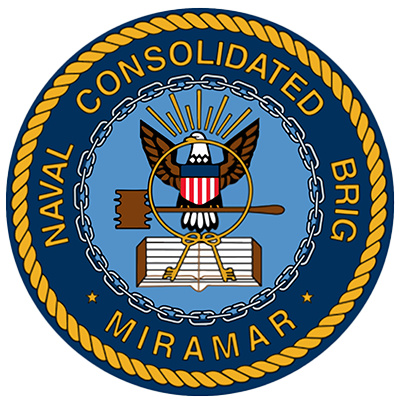
Commander Jennifer Forbus
Abuses were not solely committed by lower enlisted ranks at NCBM, but also by officers. Many times, these were verbal abuses committed in open areas well within earshot of other prisoners.
Commander (O-5) Jennifer Forbus arrived as the Executive Officer (XO) and, as is the pattern, eventually assumed the post as the Commanding Officer (CO).
I was told, after filing a complaint against her, that she was very direct in the way she spoke to people.
She had a terrible habit when speaking to prisoners to incessantly repeat information over and over until prisoners finally gave up, agreed with what she was saying, or she left in frustration.
CDR Forbus simply could not bear the idea of a prisoner proving her wrong.
When she was not getting her way, she would begin to raise her voice until she was literally screaming, and had nothing left. CDR Forbus did not have the proper temperament for the position she held and was therefore, unfit to command. All the prisoners and staff members knew this to be true.
“THIS IS A LEGAL MATTER”
In one incident, Dwayne W. was in the process of going through his appeals. A representative of someone he knew had sent him paperwork to sign but he felt the paperwork was suspicious. He contacted his attorney who immediately told him not to sign the paperwork because it would greatly harm him financially. As most people would probably do, he accepted his attorney’s advice and did not sign anything.
Somehow, word had gotten to Commander (CDR) Forbus about this issue. It is not the CO’s place to ever interfere or intervene in any resident’s legal matters unless it is for charges incurred at the facility. Yet, CDR Forbus took it upon herself to confront Dwayne W. to find out why he refused to sign the paperwork he was given.
CDR Forbus entered the housing unit, proceeding directly to the counselor’s office. Once Dwayne W. entered the office, residents were able to see clearly through the windows there was a heated conversation taking place
It was clear that whoever had contacted the CO had shared privileged information with her. She was becoming increasingly agitated because Dwayne W. was refusing to answer any of her questions about the matter at hand, as was his right.
Suddenly, there was a huge outburst from the office and the CO was screaming at Dwayne W. She ordered him to answer any questions she put to him, even threatening him with disciplinary action if he continued to remain silent on the matter.
He remained calm and spoke quietly, as he was very softspoken. CDR Forbus became increasingly enraged. She produced some paperwork, slammed it on the desk and said, “This is a legal matter and you will sign this document right now!”
After several more minutes of yelling and berating him, she finally left, exasperated, with no signature on anything Her attempt to intimidate and coerce failed.
It’s a guess but we all thought Dwayne W. had threatened her with a complaint to the Inspector General, reminding her he had several witnesses of what she was attempting to do.
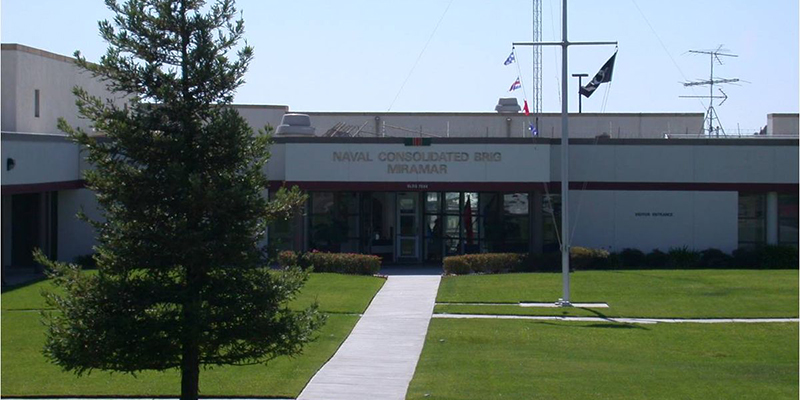
“I HAVE THE AUTHORITY”
Aother incident involving CDR Forbus came when she decided to remove an entire genre of material from the NCBM library. Manga is a type of comic book and graphic novel, published in Japan, and has a distinct style of illustration. These types of books have become increasingly popular with American preteens and teenagers, as well as adults.
There was a large selection of manga in the NCBM library. There were also several selections on the book carts in each housing unit. Additionally, several residents had their own copies and would borrow among themselves.
While there may be justification for restricting some materials from entering the facility and/or being available to residents, such as sexually explicit content, the commanding officer cannot remove an entire genre from the facility based solely on personal preference. However, believing she had ultimate authority over everything, including court rulings on the matter, CDR Forbus decided to ban this entire genre from the facility.
It wasn’t long before systematic shakedowns of each housing unit began to take place. These searches were to remove the material from the housing units, including prisoners’ cells because the material was now be considered contraband. All manga that entered the brig was screened for appropriate content and was considered tame literature. It never caused anyone any harm and helped prisoners to mentally escape their conditions, even for a few minutes a day.
When shakedowns occur, everyone in the housing unit is taken to another, unused housing unit to wait for staff members to complete their search. Prisoners knew what was happening because the workers in the library had spread the word. During my housing unit’s shakedown, one resident, Nicholas L., had requested to see the CDR Forbus.
She arrived where we were waiting and took Nicholas L. to another side of the unit out of sight from the rest of us. Once again, she expected the him to accept her as the absolute authority.
This is true but this authority is very limited. When questionable material is seized in the mailroom, it goes through an administrative process to determine acceptance or rejection. Only if the material is rejected is the CO the final authority on the matter.
Once again, CDR Forbus was getting very angry because she was not getting her way. Her voice suddenly boomed through the entire housing unit, “You don’t get to decide what gets in this facility. I am the commanding officer. I have the authority. You don’t get to tell me what rules I get to follow. This is what is happening and you will deal with it!”
Ultimately, for the remainder of her tenure as the CO, manga was banned from the facility. Although this was technically illegal, no one at any level did anything about it.
Technical Director, Lori Turley, who had previously been the commanding officer at NCBM before retiring from active duty and who was the highest civilian authority at the facility, sadly remained silent on the matter. It was a few years later that manga began to reappear.
“[Command Duty Officer] CDO is responsible for…ensuring the health, welfare, and safety of staff members and prisoners. In the absence of the brig officer, during holidays, weekends, and after normal business hours, the CDO is in charge of MCF operations.” – SECNAV M-1640.1, Article 3201.2s
TSGT JOSHUA COOPER
Technical Sergeant (TSgt) Joshua Cooper seemed like he was a pretty approachable person when he arrived at NCBM. He started, as most people do, as a Quarters Supervisor in the housing units. Shortly afterward, he was put into training for the CDO position.
Again, like most of the staff members who came to NCBM, once they were put into a position of higher authority and influence, they became drunk with the power that came with the new position.
Regulations at NCBM state recreation is to be cancelled if the ground is visibly wet after rain. This protocol is meant to prevent slip-and-fall injuries, thus “ensuring the health, welfare, and safety” of prisoners.
Under these circumstances, residents are to be allowed to remain in their housing units instead of normal compulsory attendance. The majority of residents treasure these opportunities because they want to engage in other activities.
After a day of particularly heavy rain, the recreation yards were significantly covered in water. However, when recreation time came around, the rain had stopped. To Cooper, this meant recreation was back on and all housing units were to attend. Several prisoners cited standard operating procedure and the conflict between what he wanted and what it said.
Cooper went apoplectic, threatening to have prisoners placed on report for disobedience if the did not comply with his order to attend recreation. After a few prisoners explained how his decision was potentially exposing prisoners to injury, Cooper finally decided to relent.
Several months later, reliable staff members passed on a piece of information to prisoners. As TSgt Cooper was coming on for his night shift as CDO, many staff members witnessed him say prisoners were all guilty of their offenses and it was the staff’s duty to “avenge their victims.”
Cooper then began systemically targeting certain prisoners on a daily basis for contraband. Cell searches are supposed to be chosen at random. Remember, prisoners are to be free from harassment.
Prisoners couldn’t do anything but file a complaint. The matter was not addressed until several weeks later because the staff in Operations insisted the searches were being done at random. Being chosen for a cell search every time Cooper was on duty is a far cry from random.
Once Operations realized there might be some truth to these complaints, they conducted and investigation into the matter. TSgt Cooper received a slap on the wrist: he was reassigned to Control for a week and then allowed to return to his duties as CDO.
Still harboring a grudge against prisoners, he did what he could to provoke prisoners one at a time.
IC1 RANDY RONQUILLO
IC1 (Interior Communications Electrician, First Class) Randy Ronquillo was another suffering from an inferiority complex, making sure to assert his authority over both staff and prisoners, alike.
In every situation, he had to be right and, if you proved him wrong, he would do everything he could to make you regret it. He also seemed to take great pleasure in reminding prisoners that they were essentially powerless to his authority.
Darrius U. arrived at NCBM in 2016 and had been there for about a year at the time of this incident. Southern California can have some very mild winters but 2017 was particularly cold. Prisoners went to recreation bundled up in sweats and jackets to keep warm.
Unfortunately, the NCBM Rules & Regulations state wearing beanies during cold weather is at the discretion of the CDO. This means the CDO essentially has the power to decide whether residents feel cold and need to be wearing head coverings.
Most people would realize the weather was cold enough in the evenings to warrant head coverings. IC1 Ronquillo decided to take this opportunity to flex his authority during his rounds and told residents to remove their head coverings in 40-degree weather. For prisoners who were bald, like yours truly, this was very uncomfortable, especially with a strong gust of wind.
If anyone protested, asking why, he replied, “You don’t need it. The weather isn’t cold enough.” Again, the 8th Amendment to the Constitution forbids cruel and inhumane treatment.
Darrius U. pressed further by stating he was cold and was going to keep his beanie on. IC1 Ronquillo retorted by saying, “I’m not wearing one. We’re in southern California. It doesn’t get cold down here.” Darrius U. stilled refused to remove his head covering and was put on report.
Later that week, he went to a Disciplinary & Adjustment Board, the Navy Corrections’ kangaroo court system established to deal with administrative discipline issues. During his Board, IC1 Ronquillo was present. Darrius U. was questioned and he gave his testimony, again stating he was cold and wanted to wear his beanie to stay warm.
IC1 Ronquillo responded by saying, “You couldn’t have been cold. You have hair.” The Board determined Darrius U. was guilty of disobedience and disrespect and was punished for simply wanting to keep his beanie on during cold weather.
We have heard these stories before. In one case, sadistic staff members had taken the mattress from the prisoner forcing him to attempt sleep on the concrete floor of his cell. The temperature dipped down to a purported 37 degrees. It is the definition of cruel and inhumane treatment of prisoners.
If you are a former prisoner of a military correctional facility, please contact us and tell us your story. If you are active duty, feel free to contact us. We guarantee your anonymity, but don’t give us anything that can lead back to you.
You surely know how vindictive leaders in the military can get. This is especially true if incarcerated in a military prison. Even so, don’t be afraid to share your information with us. Do not be afraid to tell your story or to share what misconduct you have seen occur to other people.
Change is only possible when the truth is revealed and someone in a leadership position has the courage to introduce corrective action. Our purpose is to expose those who are committing maltreatment of military prisoners. We hope that, one day, they will have to answer for what they have done.


